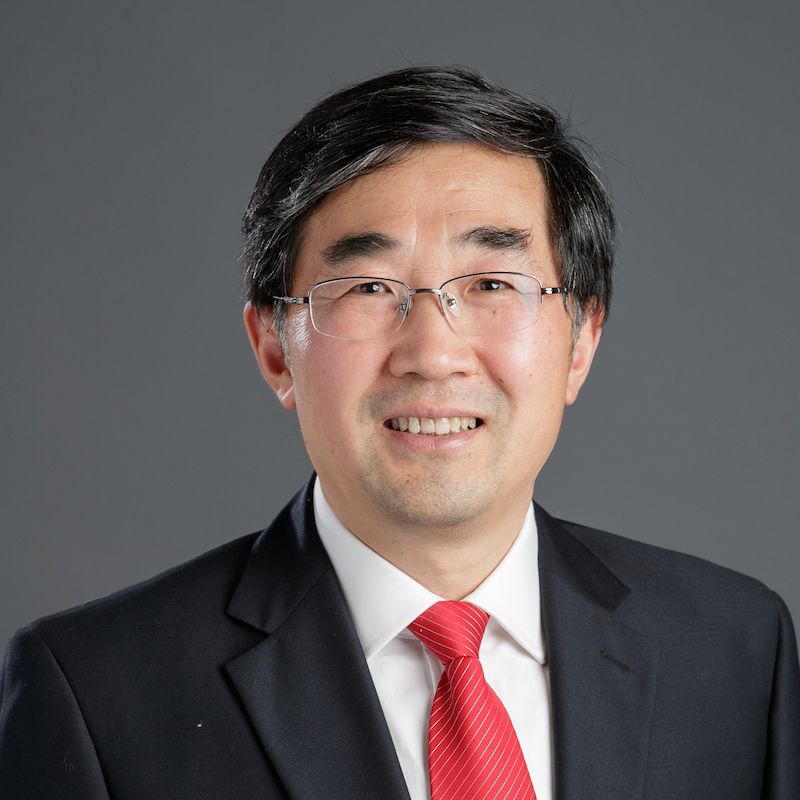Professor Songlin Ding
Professor


Centre for Additive Manufacturing
Email: songlin.ding@rmit.edu.au
Phone: +61 39925 6198
Campus: Bundoora

Centre for Additive Manufacturing
Email: songlin.ding@rmit.edu.au
Phone: +61 39925 6198
Campus: Bundoora
Songlin Ding is a Professor of Manufacturing Engineering in the School of Engineering. He joined RMIT as a Lecturer in 2005 after working in the United States, China, and Singapore for several years, and was promoted to Senior Lecturer in 2009, Associate Professor in 2015 and Professor in 2020. Currently he is the Program Manager for Master of Engineering (Manufacturing).
Prof Ding’s teaching and research interests are in Computer Aided Design and Computer Aided Manufacturing (CAD/CAM), geometric modelling, and advanced manufacturing processes and technologies including the application and machining of difficult-to-machine materials such as synthetic diamonds and titanium alloys with both CNC and non-traditional methods. He has coordinated and taught over 20 different courses into both onshore and offshore programs at RMIT and published over 100 research papers in the areas of manufacturing engineering, mechanical engineering, and control engineering.
In the last decade, Prof Ding has conducted fundamental and applied research on the next generation machining technologies and processes that underpin the development of local and global manufacturing industries. He created and named the concepts of “adaptive iso-planar”, a machining strategy which is now widely used in commercial CAD/CAM packages. He developed new approaches for high-speed machining of ultra-hard materials for the local industry. His research which was supported by the ARC, CRCs, Victoria Government, and industry partners has generated significant impacts to the industry.

2002 - 2003 Senior Engineer, General Electric (GE), Shanghai, China
2003 - 2005 Research Fellow, Institute of High Performance Computing (IHPC), Singapore

Prof Ding’s current research is focused on developing new approaches to electrical discharge machining of hard materials based on new machining theories, investigating the mechanism of CNC machining of advanced materials, and developing new post-processing processes for additively manufactured biomedical components.
Machining, Electrical Discharge Machining, Additive Manufacturing, CNC, EDM, CAD/CAM
Publications
Projects

Advanced manufacturing technologies including both CNC and nonconventional machining, and additive manufacturing.
CAD Computer Aided Design, 2003, 35(2), pp. 141–153
Ding, S., Mannan, M.A., Poo, A.N., Yang, D.C.H., Han, Z.
Journal of Manufacturing Science and Engineering, Transactions of the ASME, 2015, 137(2), 021017
Rahim, M.Z., Ding, S., Mo, J.
Journal of Materials Processing Technology, 2019, 271, pp. 584–598
Li, G., Yi, S., Li, N., Pan, W., Wen, C., Ding, S.
Journal articles
Journal articles
Journal articles
Book chapters
Journal articles
Book chapters
Journal articles
Journal articles
Journal articles
Journal articles
Book chapters
Journal articles
Book chapters
Journal articles
Book chapters
Journal articles
Journal articles
Book chapters
Journal articles
Journal articles
Journal articles
Journal articles
Journal articles
Journal articles
Journal articles

ARC Discovery Project
Prof S. Ding, Prof Y. Feng, Assoc Prof F. Han, Dr X. Wang, Mr M. Puttaraju, Mr Y. Zhu.
2021 – 2024
ARC Discovery Project
Prof S Ding, Dr X. Wang, Dr M. Melhem, Mr X. Mao
2018 - 2022
Defence Materials Technology Centre
Prof S. Palanisamy, Prof S. Ding, Dr R. Rahman Rashid, Dr M. Mazur, Dr G. Li, Dr G. Wu, Mr A. Papageorgiou, Mr G Stephens
2020 – 2022

Research grants since 2010:


Acknowledgement of Country
RMIT University acknowledges the people of the Woi wurrung and Boon wurrung language groups of the eastern Kulin Nation on whose unceded lands we conduct the business of the University. RMIT University respectfully acknowledges their Ancestors and Elders, past and present. RMIT also acknowledges the Traditional Custodians and their Ancestors of the lands and waters across Australia where we conduct our business - Artwork 'Sentient' by Hollie Johnson, Gunaikurnai and Monero Ngarigo.
Acknowledgement of Country
RMIT University acknowledges the people of the Woi wurrung and Boon wurrung language groups of the eastern Kulin Nation on whose unceded lands we conduct the business of the University. RMIT University respectfully acknowledges their Ancestors and Elders, past and present. RMIT also acknowledges the Traditional Custodians and their Ancestors of the lands and waters across Australia where we conduct our business.